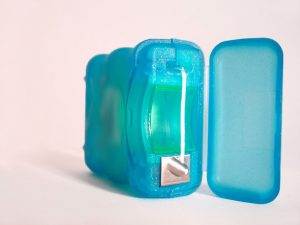Pediatric Dentist Near Me

Helping your child switch from bottles to cups can be challenging. Babies may become emotionally attached to their bottles as a source of comfort as well as nutrition.
However, bottles can also become dangerous to your child’s teeth over time. Continuing to use a bottle too long can cause your child’s palate to narrow. This can lead to an increased need for orthodontic treatment as they grow.
Bottles also expose a baby’s teeth to liquids over an extended period of time. Liquids such as milk, formula, and juice contain sugars that can increase the risk of tooth decay. To help protect your child’s teeth, you should encourage your child to start drinking from a cup by their first birthday.
It is important to consider your choice of training cup. There are many and varied options of child training cups available. Here are some things to consider when selecting cups for your child.
Keep the goal in mind when choosing a style of training cup for your child.
Cups advertised as “no spill” often contain a special valve beneath the spout. This valve does protect against easy spilling, but also prevents sipping. Instead, these cups require your child to suck on the spout, essentially replacing one type of bottle with another. This can slow your child’s training on cup usage. In some cases, these valves may even require a high level of suction, making them frustrating to use.
Look for a cup with a simple spout rather than a “no spill” spout.
These cups are easy for your child to use and help them learn to sip. Cups with handles can be easier for small hands to learn to hold. If spills are a concern, look for a cup with a weighted base that can help it self-right.
Remember that transitions occur in stages.
Phase out the bottle in favor of the cup, don’t try to change all at once. Once your child can use the cup, limit the bottle to water. This can help make the bottle less desired. Provide the bottle less often over time to allow your child time to adjust. Once your child has mastered training cups, start offering a small plastic cup without a lid. When they can use this new cup, phase out the training cup.
For more information about bottle to cup transitions or to schedule an appointment, contact our office.
6496 Quail Run Drive
Pelham, AL 35124
Phone: (205) 739-7773

 It has long been known that dairy products contain high amounts of calcium, which is important for developing and maintaining strong teeth and bones. However, not all dairy works in the same ways. Did you know that a recent study has found that cheese can actually help protect teeth against cavities?
It has long been known that dairy products contain high amounts of calcium, which is important for developing and maintaining strong teeth and bones. However, not all dairy works in the same ways. Did you know that a recent study has found that cheese can actually help protect teeth against cavities? By now, you have likely seen news reports questioning whether flossing is necessary for your oral health.
By now, you have likely seen news reports questioning whether flossing is necessary for your oral health. Our convenient local dental office is featuring children’s dentistry services for families in our community. The American Dental Association recommends that all patients follow a routine of dental examinations at least every six months, or as directed by their dentist. This is particularly important for growing children.
Our convenient local dental office is featuring children’s dentistry services for families in our community. The American Dental Association recommends that all patients follow a routine of dental examinations at least every six months, or as directed by their dentist. This is particularly important for growing children. The American Dental Association recommends all patients to schedule routine six-month check-up exams. This is particularly important for growing children.
The American Dental Association recommends all patients to schedule routine six-month check-up exams. This is particularly important for growing children. Pediatric Dentist Near Me
Pediatric Dentist Near Me It is a common belief that teething causes secondary symptoms such as a runny nose, irritability, high fever, or problems with sleeping. However, studies have shown that these types of concerns are caused by health issues unrelated to teething. Here are some of the things to expect during teething, and some that are often attributed to teething, but are better discussed with your child’s doctor.
It is a common belief that teething causes secondary symptoms such as a runny nose, irritability, high fever, or problems with sleeping. However, studies have shown that these types of concerns are caused by health issues unrelated to teething. Here are some of the things to expect during teething, and some that are often attributed to teething, but are better discussed with your child’s doctor. Periodontal disease is a bacterial infection in the gums that can impact the teeth and jawbone if left unchecked. About half of all children suffer from periodontal disease. Fortunately, if identified and treated early, its effects can be managed and even reversed to allow your child to return to optimal oral health through adolescence and beyond.
Periodontal disease is a bacterial infection in the gums that can impact the teeth and jawbone if left unchecked. About half of all children suffer from periodontal disease. Fortunately, if identified and treated early, its effects can be managed and even reversed to allow your child to return to optimal oral health through adolescence and beyond. We’ve all been told at least once in our life that flossing daily is crucial. Here are four reasons why flossing may be beneficial for your oral health routine:
We’ve all been told at least once in our life that flossing daily is crucial. Here are four reasons why flossing may be beneficial for your oral health routine: It can be difficult to get your child to practice proper oral care unsupervised. However, the long-term benefits of an early start to optimal oral hygiene are worth the effort. Below are some tips to help you make oral health a fun part of your child’s daily routine.
It can be difficult to get your child to practice proper oral care unsupervised. However, the long-term benefits of an early start to optimal oral hygiene are worth the effort. Below are some tips to help you make oral health a fun part of your child’s daily routine. Hoover Dentist
Hoover Dentist





